Title of the document
Test
first.
Because the best treatment for
your stomach cancer
can be individualized.
What are
biomarkers?
They are bits of information unique to you and your cancer.
Cancer cell biomarkers can be genes, gene mutations, or proteins that cause cancer cells to grow and spread to other locations. It is important to check for stomach cancer biomarkers because new drugs can potentially target them and stop cancer growth.
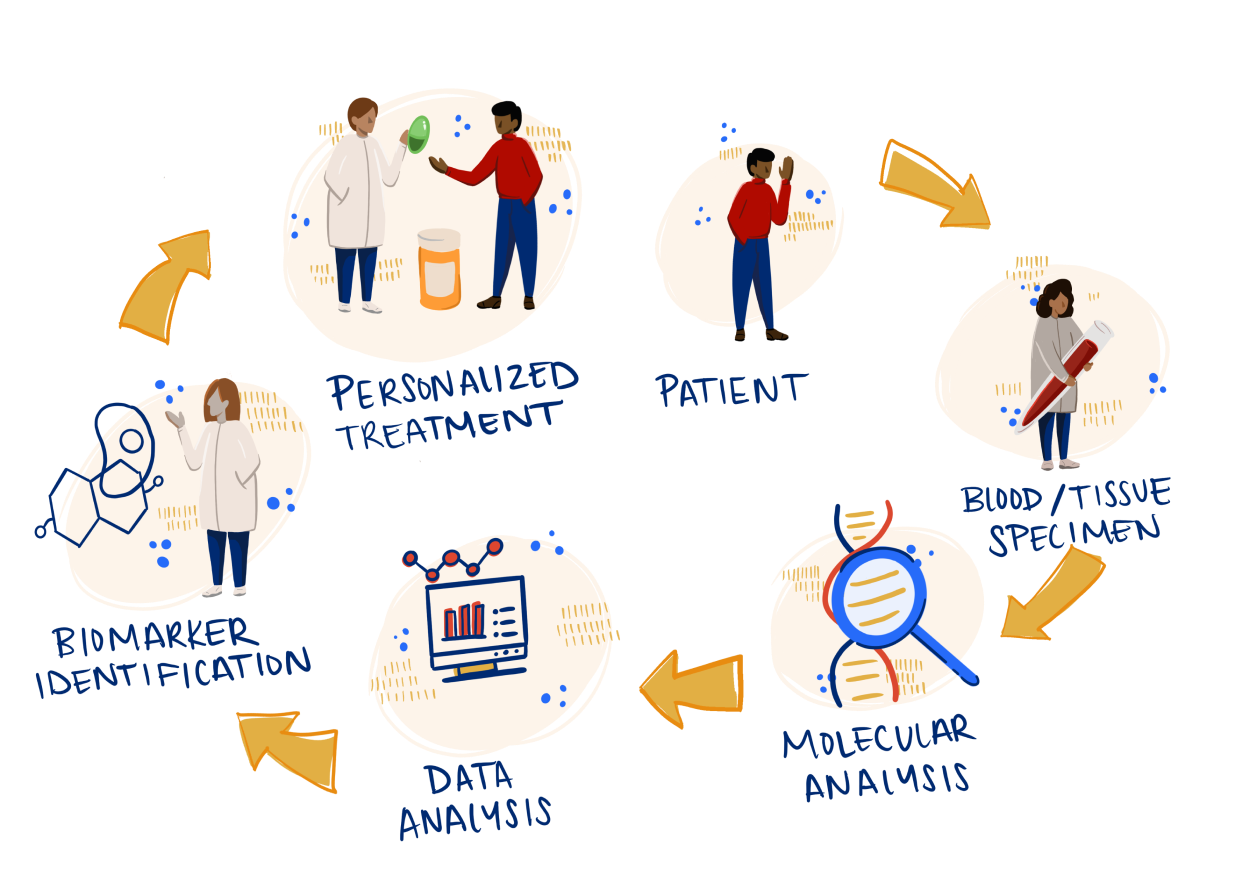
How do I test
for biomarkers?
Biomarkers can be tested for in biopsies or in blood.
Why should I test for biomarkers?
Biomarkers can help your doctors develop the most effective treatment plan possible for you.
It is important to know which biomarker is driving your cancer and to disable that biomarker if a drug is available. Not all stomach cancers have the same biomarkers. Biomarkers can also change during the course of treatment.
Common Biomarkers in Stomach Cancer
HER2
HER2 positive tumors have above normal HER2 protein, which causes cancer cells to grow.
MSI-high and dMMR
When cells are unable to correct DNA errors, they can replicate uncontrollably, and cause cancer.
PD-L1
Cells with too much of the PD-L1 protein allow gastric cancer cells to evade the immune system.
EBV
Epstein-Barr virus may play a role in transforming normal stomach cells into cancerous ones.
Tumor-agnostic
Some biomarkers such as NTRK, BRAF mutations and RET fusions are not specific to stomach cancer.
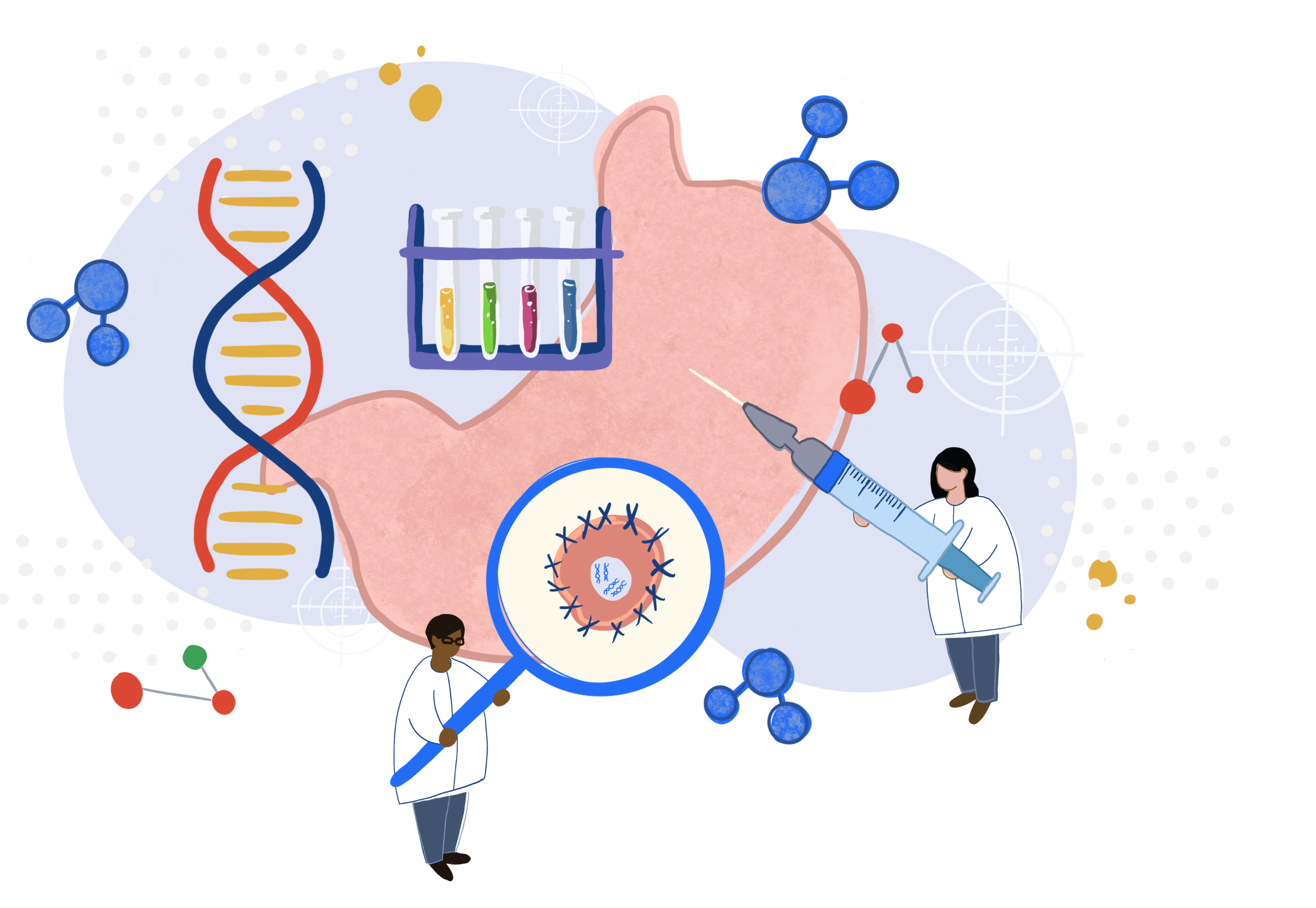
Emerging biomarkers:
As new biomarkers are identified and researched, more individualized treatment will become available. Learn more about CLDN18.2, FGFR, MUC17, KRAS and DKK1.
Personal Stories
Testing for stomach cancer biomarkers is known to save and extend lives. Patients and survivors share their stories.
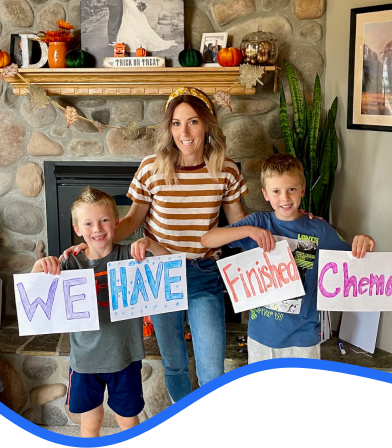
PDL-1 CLDN 18.2
Lauren Donithan
Lauren was diagnosed with Stage IV stomach cancer in 2023 at age 37.

HER2
Javier Flores
Javier received the grim diagnosis of Stage IV stomach cancer in 2017 at age 39.

MSI-high
Uroosa Khalid
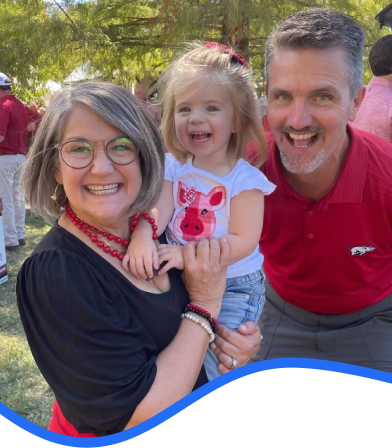
HER2
Terri Brady
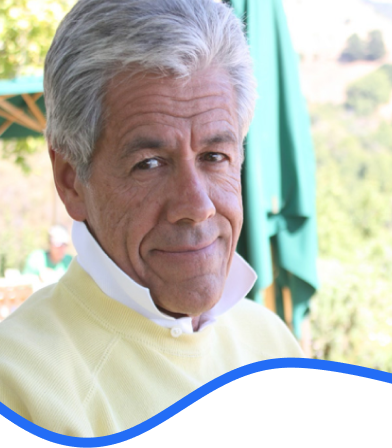
HER2
Bruce Shipman
In 2021, Bruce was in the midst of a cross-country move when he was diagnosed.
Did biomarker testing
affect your stomach
cancer treatment plan?
What is Test Your Biomarker?
Test Your Biomarkers, a program of the GI Cancers Alliance, is a national educational and awareness initiative empowering the stomach (gastric) cancer community about the importance of biomarker testing in treating stomach cancer. Join us to reach more patients with potentially life-saving information about biomarker testing. For sponsorship and advocacy opportunities, contact info@gicancersalliance.org. Thank you to our industry sponsors: Amgen, Astellas, Daiichi-Sankyo, Bristol Myers Squibb, and Jazz Pharmaceuticals.
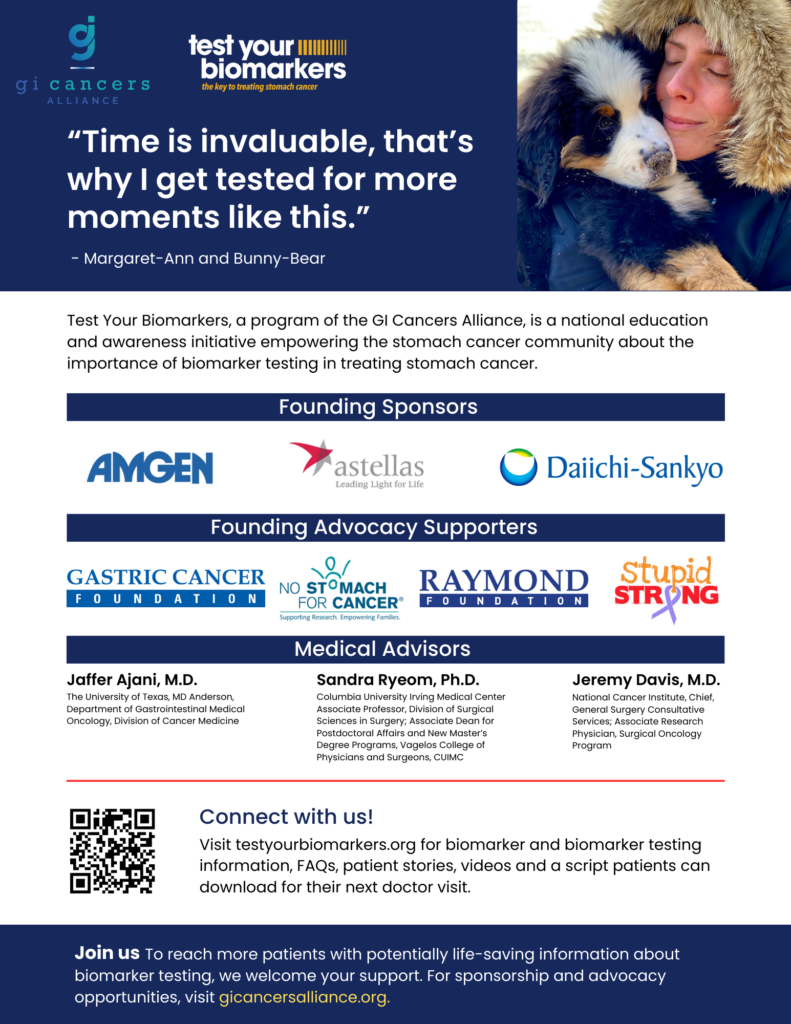






tumor
mutational
burden
Suzanne Ottinger